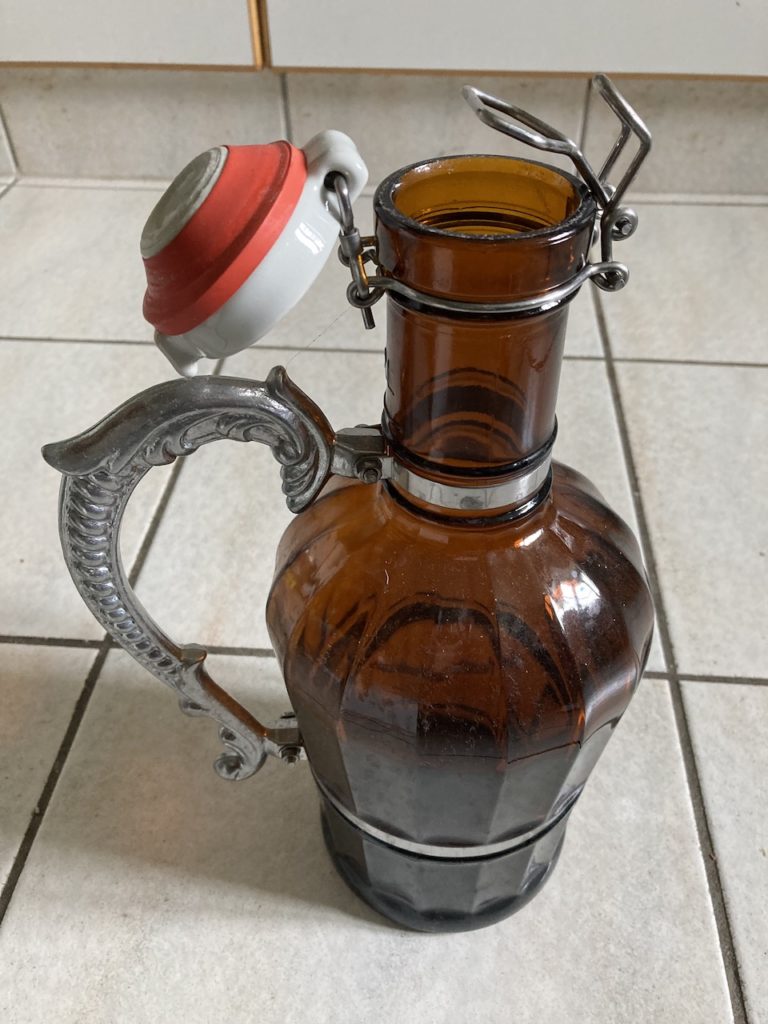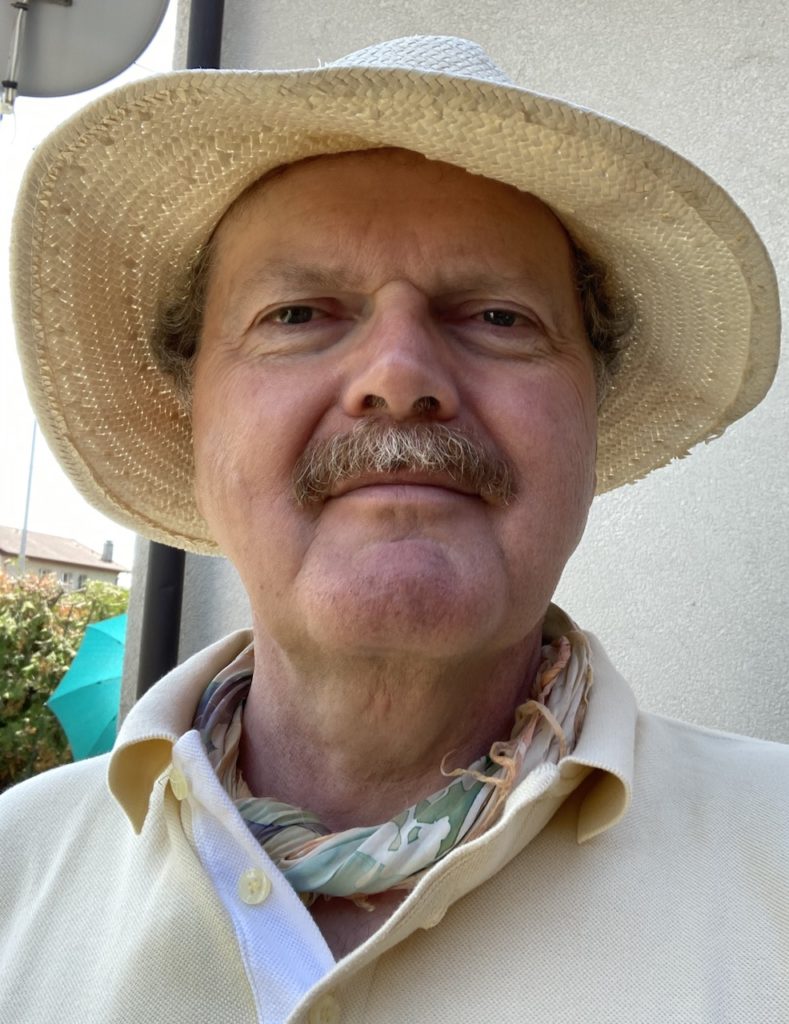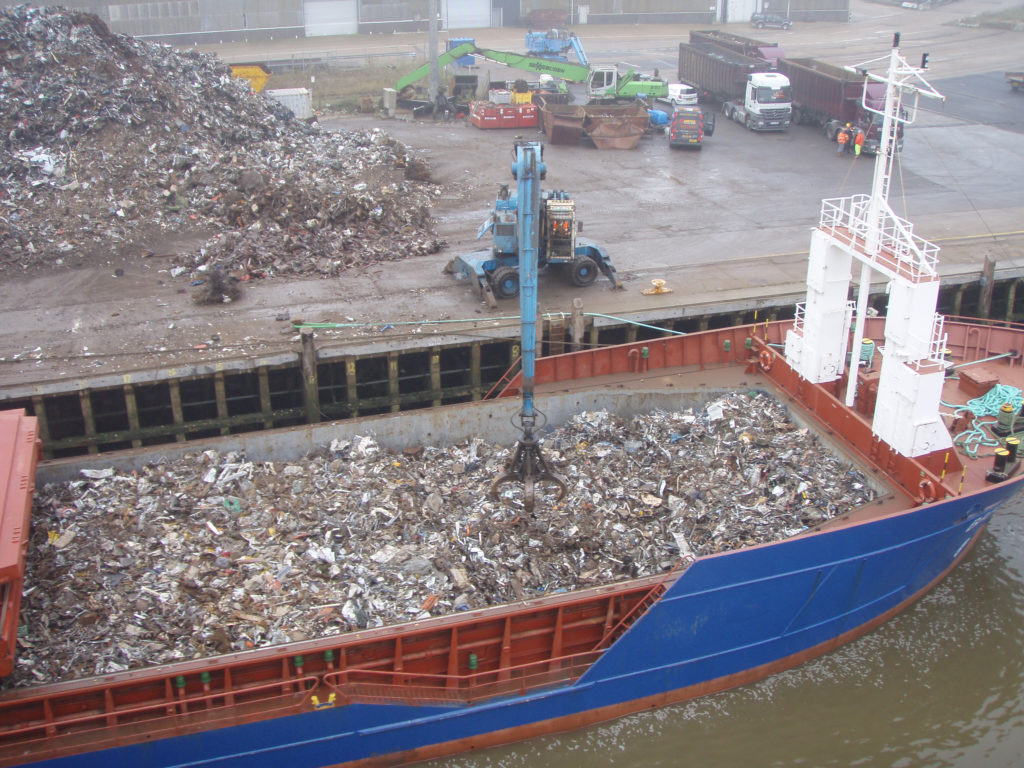
The 2 litre beer siphon.
Spring has arrived – although you wouldn’t think it from the weather – and with it the fearsome and inevitable spring cleaning.
My wife thinks I’m a terrible hoarder. There are a lot of piles of books and this and that around the house. I counter by asserting that, although there are a lot of things in the house, they are of high quality. The fact remains, however, that when we try to grab one thing, something else, or several other things, usually fall to the ground.
Exasperating.
Sufficiently exasperating for it to be time to do something about it.
So I started to put things up for sale on FB Marketplace.
Let’s be honest here.
If we haven’t used something for five or even ten years, then it’s really time to get rid of it unless there is a high emotional charge attached.
If you too are a hoarder, I can already hear your reply:
“But it might come in useful.”
I’ve often said this to myself.
But what if you change the refrain to this:
“It might come in useful – for someone else.”
Example:
I inherited a large 3-D mounted map of Switzerland from a business I ran with a partner over twenty years ago. That map has been propping up the wall at the end of our bed ever since we moved into the house in 2004. I would get up every morning and look at it and say to myself, “I really should sell that.”
Well, a few weeks ago I finally got around to putting up an advert on Marketplace. I knew perfectly well that otherwise the map would continue to prop up the wall for another ten years and that I would continue to look at it every morning and say to myself, “I really should sell that.”
It was time to allow the map to continue its useful life with someone else.
The person who eventually bought it was a huge fan of 3-D maps and was going to put it up in his home. Great!
When I became a naturalized Swiss citizen in 2017, I received a number of presents including a 2 litre jar of beer. Now this jar has a seal and was meant to be re-usable, but I discovered that as I drank the beer it got progressively flat. So I never re-filled it.
What to do? It seemed too well made (see photo above) to throw out in a glass recycling bin, and I thought it might come in useful – for someone else. At first, I put it up for sale for a derisory price, but still didn’t get any interest. So I decided to give it away for free. Instantly five people were interested, and one came through.
One less object around the house.
And so the process continues….
What I would say, and I’ve talked about this in another post entitled “Mental Clutter,” is that it’s actually not a good idea to wait ten or twenty years to get rid of something that you’re not going to use. Going back to the 3-D map, the fact that I looked at it every morning and thought it would be a good idea to sell it involved not just physical clutter but also mental clutter. The thought itself was clutter. And the longer you wait to get rid of the physical clutter, the longer the effects of the mental clutter will remain.
Now I get out of bed and look at the space where the 3-D map was and think, “What a good thing I managed to sell that!” The relief of having finally done something about it may be more positive than the “I really ought to sell it” thought, but it’s still mental clutter or scarring.
Much better not to be thinking about it at all and have more space in your mind for something useful.
The takeaway from this is that the sooner you make up your mind to get rid of something you don’t use, and act on it, the less physical – and mental – clutter you will have to deal with.
So the next time you look at something at home that you don’t use and say, “It might come in useful,” try changing the refrain to:
“It might come in useful – for someone else.”
It may help you to move on.
May your life never become an endurance test.
Love
Richard



